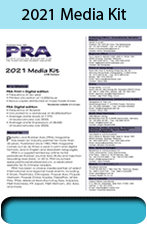Tie-ups: Mitsubishi Chemical to supply CFRP to Japanese space venture; Neste, Mitsui Chemicals and Toyota Tsusho collaborate on plastics from biobased hydrocarbons

Mitsubishi Chemical Corporation has entered into a partnership agreement with Dymon Co., the robot and space development venture, the first private company ever to explore the moon. Based on this agreement, MCC will provide carbon fibre-reinforced plastic (CFRP) components and thermoplastic materials as well as technical support. As part of the agreement, MCC’s CFRP components will be used in parts for the lunar rover, which is scheduled to be launched in the fall of 2021.
Equipment used in the space field requires strength, rigidity, and heat resistance that can withstand use in harsh environments such as under launch conditions and in space. In addition, weight reduction of components is a major issue required to reduce transportation cost to get to the lunar surface, which is said to total 100 million yen per kg. Until now, aluminum materials have mainly been used, but CFRP, which combines strength and lightness, is expected to be used more widely in the future.
MCC, which already has a proven track record of adopting CFRP components in the space field such as artificial satellites, will further accumulate experience in using CFRP components in space and on the moon through the alliance with Dymon to accelerate the development of products and applications such as components for a lunar base.
By actively pursuing opportunities in the space business, which is expected to continue to grow in the future, MCC will aim to achieve the growth of its businesses.

In other news, Neste, Mitsui Chemicals, Inc. and Toyota Tsusho Corp. are joining forces to enable Japan’s first industrial-scale production of renewable plastics and chemicals from 100% bio-based hydrocarbons.
In this collaboration, Mitsui Chemicals will use Neste RE, 100% biobased hydrocarbons produced by Neste, to replace a part of the fossil feedstock in the production of a variety of plastics and chemicals at its crackers within Osaka Works during 2021. In doing so, Mitsui Chemicals will become Japan’s first company to use biobased feedstock in its crackers. The collaboration between Neste, Mitsui Chemicals and Toyota Tsusho will enable brand owners and other potential clients in the Asian market, particularly in Japan, to start incorporating renewable plastics and chemicals into their products and offerings.
For this collaboration, Neste, a forerunner in producing renewable and recycled feedstock alternatives for the plastics and chemicals industry, will produce its Neste RE feedstock entirely from renewable raw materials, such as biobased waste and residue oils, without any fossil oil. By using Neste RE, Mitsui Chemicals is able to produce plastics and chemicals with significantly reduced greenhouse gas emissions over their life cycle – spanning from the raw materials stage all the way through to product disposal – when compared to products made using fossil feedstock, such as petroleum naphtha.
The introduction of Neste-produced bio-based hydrocarbons as feedstock at the crackers will allow Mitsui Chemicals to produce renewable ethylene, propylene, C4 fraction and benzene, among others, and process them into basic chemicals such as phenol, or plastics such as polyethylene and polypropylene, without altering the high-quality of these derivatives; the quality will be on par with conventional products.
Mitsui Chemicals and Toyota Tsusho intend to acquire International Sustainability and Carbon Certification (ISCC), which is widely accepted in Europe as a system for the certification of products from bio-based feedstock. Mass balance based ISCC Plus certification aims at driving up adoption of renewable content even in supply chains that feature complex production processes, such as those common in the chemical industry.
“Aiming to reach carbon neutrality by 2050, Mitsui Chemicals is looking to help bring about a circular economy by pursuing the two pillars of recycling and the use of bio-based alternatives for its chemical and plastic products,” said Hirahara Akio, Managing Executive Officer for Corporate Sustainability at Mitsui Chemicals.
(PRA)
Subscribe to Get the Latest Updates from PRA Please click here
©2021 Plastics and Rubber Asia. All rights reserved.

©2020 Plastics and Rubber Asia. All rights reserved.
Home Terms & Conditions Privacy Policy Webmail Site Map About Us















